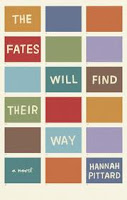 In starting up the Weekend Reviews again I am finding that there are as many news stories about teen and crossover books as there are reviews in the mainstream media.
In starting up the Weekend Reviews again I am finding that there are as many news stories about teen and crossover books as there are reviews in the mainstream media. Here's a nice article about husband-wife team Marc Aronson and Marina Budhos and their Young Adult nonfiction title Sugar Changed the World: A Story of Magic, Spice, Slavery, Freedom and Science in the South Orange Patch. Sugar Changed the World is a finalist for the 2010 Los Angeles Times Book Prize in the Young Adult Literature category.
Ian Crouch brings us up to date on the case against Leonora Rustamova (U.K.) in The New Yorker. Rustamova wrote, with her teenaged students, a self-published novel called Stop! Don't Read This, a book in which teen-aged boys, "named after and resembling her students, sell cocaine, skip school, and, at one unfortunate point, practice 'orgasmic moans' that sound like 'the soundtrack to teenage gay porn.'"
Claire Armistead writes about sibling-to-sibling reading in the Guardian in anticipation of the launch of the Guardian's children's book club. (A site which is meant to be for children only. We'll see how that goes!)







